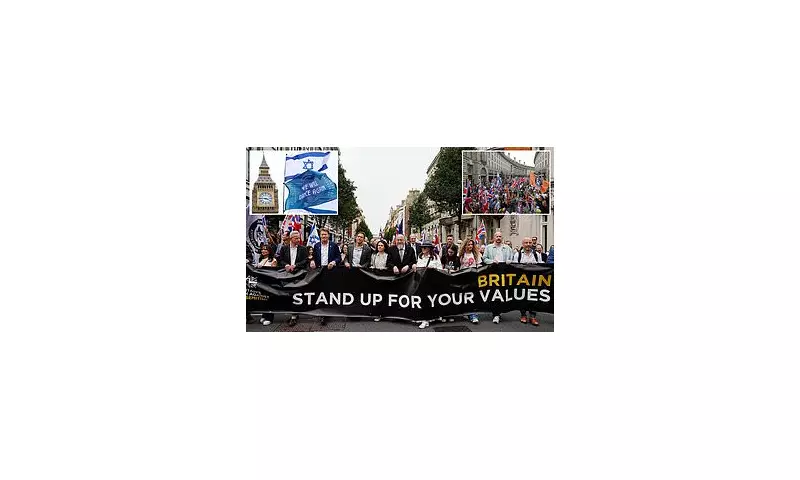
Central London became the epicentre of a powerful stand against hatred on Sunday as tens of thousands of demonstrators marched in a major protest against antisemitism, organised by the Campaign Against Antisemitism. The timing proved particularly significant following the release of disturbing polling data suggesting one in five British adults holds hostile views towards Jewish people.
A Sea of Voices Against Hate
Protesters, carrying Union flags and banners with messages including "Never Again Is Now" and "Zero Tolerance for Antisemites," filled the streets around Parliament. The scale of the demonstration, which organisers claimed reached tens of thousands, underscored growing public concern about the rise of anti-Jewish sentiment in the UK.
Gideon Falter, chief executive of the Campaign Against Antisemitism, addressed the crowd with a stark warning: "We are here to send a message that enough is enough." He emphasised that the Jewish community could not stand alone against this tide of hatred.
Alarming Poll Reveals Deep-Seated Prejudice
The march coincided with the publication of deeply concerning research commissioned by the campaign group. The poll, conducted by YouGov, revealed that:
- One in five Britons (20%) expressed hostility towards Jewish people
- Nearly half (45%) agreed with at least one antisemitic statement presented to them
- 45% of Labour voters held at least one anti-Jewish attitude
- 39% of Conservative supporters expressed similar views
These findings suggest antisemitism transcends political affiliations and represents a widespread societal issue.
Political Response and Leadership Absence
Despite the significance of the event, the march saw a notable absence of senior political leadership. While the Prime Minister's office released a statement condemning antisemitism, no senior government figures addressed the crowd. The Labour Party, which has faced particular scrutiny over antisemitism within its ranks, also did not send senior representatives.
This absence did not go unnoticed by organisers and participants, many of whom expressed disappointment at the lack of visible support from the country's political leadership at such a critical moment.
A Community's Resilience
The demonstration served as both a protest and a powerful show of solidarity with Britain's Jewish community. Many Jewish participants spoke of feeling increasingly vulnerable amid rising antisemitic incidents recorded in recent years.
As the march concluded, organisers vowed to continue their campaign, calling for stronger action from political parties, social media companies, and educational institutions to combat what they described as a "growing epidemic of hatred."
The event marks a significant moment in Britain's ongoing battle against antisemitism, highlighting both the resilience of the Jewish community and the concerning prevalence of anti-Jewish attitudes that continue to persist in segments of British society.





